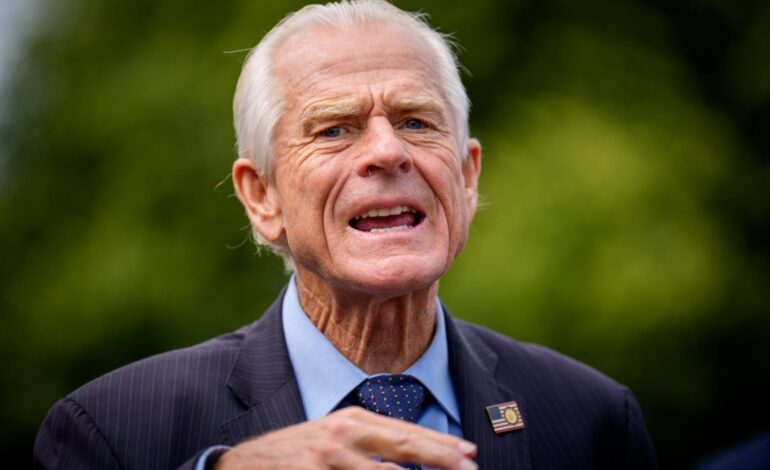Appeals Court Strikes Down Trump’s Tariffs Amid Administration’s Response

The U.S. Court of Appeals for the Federal Circuit ruled on October 6, 2023, that most of President Donald Trump’s reciprocal tariffs on global trading partners are illegal. This decision represents a significant setback for the administration’s trade policy and has prompted strong reactions from key officials, including White House senior counselor for trade and manufacturing, Peter Navarro.
The ruling, which passed with a 7-4 vote, upheld an earlier decision by the Court of International Trade. The court found that the legal basis for the tariffs, invoked under the International Emergency Economic Powers Act (IEEPA), was invalid. The majority opinion noted that the administration’s rationale did not meet the threshold for declaring an emergency.
“Both the Trafficking Tariffs and the Reciprocal Tariffs are unbounded in scope, amount, and duration,” the majority stated. “These tariffs apply to nearly all articles imported into the United States and impose high rates which are ever-changing.” The court emphasized that the tariffs are not limited in duration, further questioning the administration’s justification for their implementation.
In response to the ruling, Navarro described it as “weaponized partisan injustice” during an appearance on Fox News’s Sunday Morning Futures. He emphasized the dissenting opinions from the court, which argued in favor of the administration’s stance, suggesting these could provide a solid foundation for a Supreme Court appeal. The administration plans to contest the ruling, and enforcement of the decision is currently on hold until mid-October, allowing time for the Supreme Court to review the case.
Navarro argued that the trade deficit constitutes an emergency, claiming it is “absolutely devastating to this country.” He pushed back against the court’s characterization of the tariffs as indefinite, asserting, “We never said they were permanent.” He added that the tariffs could be lifted if certain conditions, such as the cessation of illegal drug flows from nations like China, Mexico, and Canada, were met.
On the topic of permanent tariffs, Trump previously indicated that both permanence and negotiation could coexist. In April, he acknowledged that there could be permanent tariffs while still allowing for ongoing negotiations. This stance aligns with his comments from May regarding auto tariffs, which were not impacted by the recent court ruling as they were imposed under different legal authority.
Despite the judicial challenges, Trump has continued to promote the long-term benefits of his tariffs. He referenced projections from the Congressional Budget Office (CBO), asserting that tariffs could reduce the deficit by $4 trillion over ten years and potentially generate revenue to help mitigate the national debt, which currently exceeds $37 trillion. “The purpose of what I’m doing is primarily to pay down debt,” Trump stated earlier this month.
As the administration prepares for a Supreme Court battle, the implications of this ruling could significantly affect U.S. trade policy and international relations moving forward. The outcome remains to be seen as the legal proceedings unfold.






